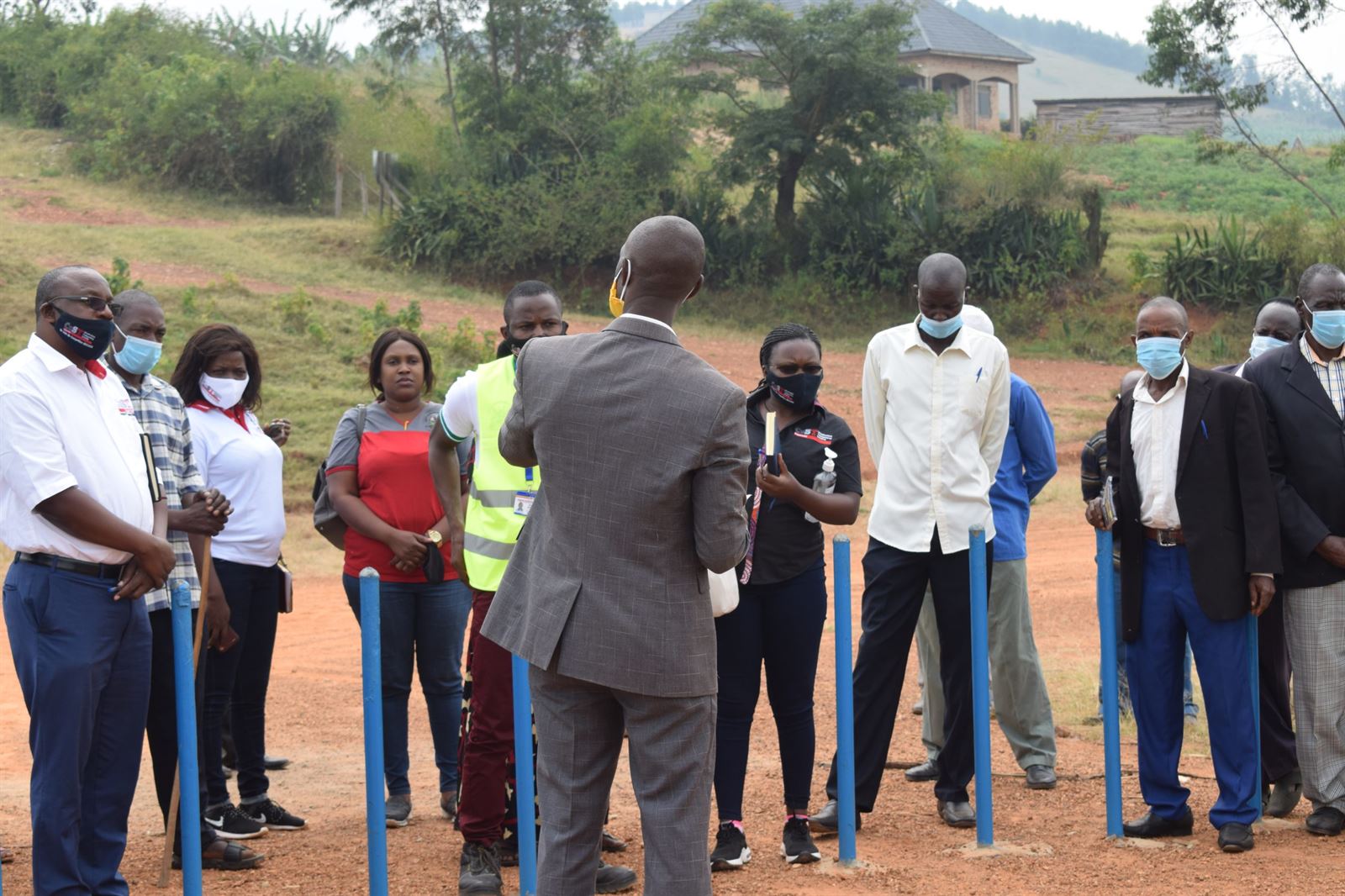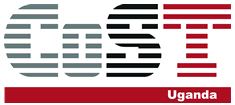
October 18, 2021 1:48 pm
- Version
- Download 0
- File Size 12.00 KB
- File Count 1
- Create Date 18th October 2021
- Last Updated 18th October 2021
“Reimagining infrastructure transparency in Uganda” Press Release on the updated Scoping Study results
Today 1st October 2021, CoST Uganda is pleased to release results a report “Reimagining infrastructure transparency in Uganda” This report entails results of the updated Scoping Study on the baseline level of transparency on infrastructure transparency in Uganda. 28 institutions from Government, private sector and civil society were engaged in the update of the country scoping study, which ran for a period of seven months. Despite the challenges of COVID-19, elections and delays in data retrieval, stakeholders were responsive and interested in sharing experiences on infrastructure transparency, participation and accountability.
For better accountability, stakeholders need to understand the disclosed information and identify issues to make informed decisions, monitor government projects and hold their leaders accountable. Results of this exercise inform an updated baseline measure of transparency in the delivery and procurement of public infrastructure projects in Uganda.
The study was guided by the following objectives;
- Follow up on the extent of implementation of the recommendations from the previous scoping study by Government, Private Sector, and Civil Society.
- Establish existing legal, policy and institutional frameworks, opportunities and gaps within the current systems for delivering public infrastructure projects at central and local government levels.
- Assess the level of transparency, stakeholder engagement and performance of public entities regarding proactive and reactive disclosure of public infrastructure projects.
- Identify how the CoST approach could add value to existing systems for procurement and delivery of public infrastructure projects.
To achieve these objectives, data were collected from a sample of 28 entities drawn from local and central government procuring entities, policy and regulatory entities, and representatives from the private sector engaged in infrastructure delivery. The study also included Civil Society Organizations (CSOs), the media, and development partners with interest in procurement and infrastructure service delivery in Uganda. Data were collected through interviews and analyzed using the thematic analysis method.
Study findings
- Government progress on implementation of the 2017 recommendations was at 69% whereas CSOs at 60% and development partners 50%.
- 68% of respondents affirmed the enabling laws and policies on infrastructure information disclosure, despite the concerns on the quality of disclosed data, and its complexity.
- 55% of respondents indicated that some political leaders have severally expressed public support for transparency and disclosure.
- Progressive improvements in infrastructure procurement and delivery data disclosure over the last 3 years (2018/19-2020/21) from under 50% to an average of 61.5% (4th A process report, 2021).
- 80% of the stakeholders need increased access to procurement plans and clarity of bidding documents for the private sector.
- 65% of the stakeholders agreed that contractors are faced with lack of access to cheaper funding sources by local contractors and weak implementation of local content regulations
- 72% of the challenges in disclosing infrastructure data in Uganda is attributed to data accessibility (right format, time, place, and cost, and attitude of PE)
- The private sector remains concerned about the low threshold for local content provisions and the definition of the resident provider. Respondents stressed the need to revise the duration of a resident provider from 2 years to “10 years and with evidence of employment and training of Ugandans at all levels.
- 64% of the stakeholders ranked implementation of laws and policies, awareness raising and stakeholder engagement as key in promoting access to information on infrastructure projects.
- Limited capacity of the political leaders on the intricacies of infrastructure projects. Examples given were reflecting to misinterpretation of material test results, results of the best evaluated bidders as forms of corruption.
- Stakeholders asked CoST Uganda to reinforce citizen awareness, empowerment, and strengthen collaboration between Government and non-state actors on infrastructure transparency. And scale up its work across the country.
- The engagement between CoST Uganda and the media was loose and lacked a strategic focus.
Scoping Study Recommendations
Recommendations to Ministry of Finance, Planning and Economic Development
- Fast-track the review of the local content schemes
- Expedite the implementation of e-GP system considering the OC4IDS to improve disclosure, data capture and analysis.
- Fast-track the creation of the Construction Industry Development Fund
- Establish and implement a National Provider Development programme.
- Require all accounting officers to provide quarterly updates to the public on infrastructure projects delivery and procurement status.
Recommendations to Public Procurement and Disposal of Public Assets Authority
- Enforce sanctions and penalties for non-disclosure as provided for under section 95 of the PPDA Act 2003 (as amended).
- Enforce the display of procurement plans on notice boards for at least 20 working days per Section 58 (6) of the PPDA Act to ensure access to information.
- Enforce aggregation of infrastructure procurements.
- Training of PDEs on disclosure
Recommendations to Ministry of Finance, PPDA & MoWT
- Engage and capacitate PDEs, and political leaders on project/contract disclosure, monitoring and reporting.
- Implement sector-focused mind-set change programmes
- Introduce rewards and incentives for the best performing entities in disclosure and performance of infrastructure projects.
Recommendations to CoST Uganda
- Support public entities in disclosure
- Train the public on data use
- Strengthen collaboration and partnerships (PDEs, private sector, CSOs, media among others)
- Adopt and sustain a strategic media engagement approach.
- Using the MSG approach, support and carry on with the fair business practices, ethics and integrity engagements to further enhance participation and build trust of the private sector.
In conclusion, this baseline measure for transparency and accountability in Uganda, continues to reveal that, while Uganda promotes disclosure of infrastructure-related information as reflected in the legal and policy environment, the willingness is yet to be translated into total commitment and action. Whereas we have enabling policies for citizen engagement, disclosure of information and have recorded improvements in openness in the sector, policy implementation is yet to be achieved, hence, most respondents noted that, Uganda has strong policies, but weak at their implementation.
CoST Uganda seeks to enhance infrastructure transparency through data use, and thus its commitment to championing transparency, accountability and citizen engagement in infrastructure delivery processes remains a priority, as set out in our new Business Plan 2021 - 2026. The infrastructure sector is the back born to the development of each country, and thus, the way projects are planned, prepared, procured, implemented and maintained should be a public concern and hence a public affair, the citizens ought to be informed, public officials need to be empowered to engage with citizens, stakeholders need to be involved and engaged for better infrastructure results. As we strengthen the economy and improve people’s lives through building better infrastructure, it is critical that we continue to appreciate that, responsive citizens and responsible public institutions help to drive reforms that reduce mismanagement, inefficiency, corruption and risks posed to the public from poor quality infrastructure.
Thank you all for embracing and supporting CoST Uganda. To read the full report, follow this link https://www.cost.or.ug/download/reimagining-infrastructure-transparency-in-uganda_updated-country-scoping-study-report/
Please note the CoST Uganda Secretariat can organize interviews and correspondences if you so wish to have them regarding this release. For more information please visit: www.cost.or.ug www.infrastructuretransparency.org, Follow us on Twitter @CoSTransparency @CostUgChapter Email; info@cost.or.ug or call +256 777 290 621, or +256 703 022114.
Mr Gilbert Sendugwa
Africa Senior Regional Manager for CoST International
For CoST Uganda
